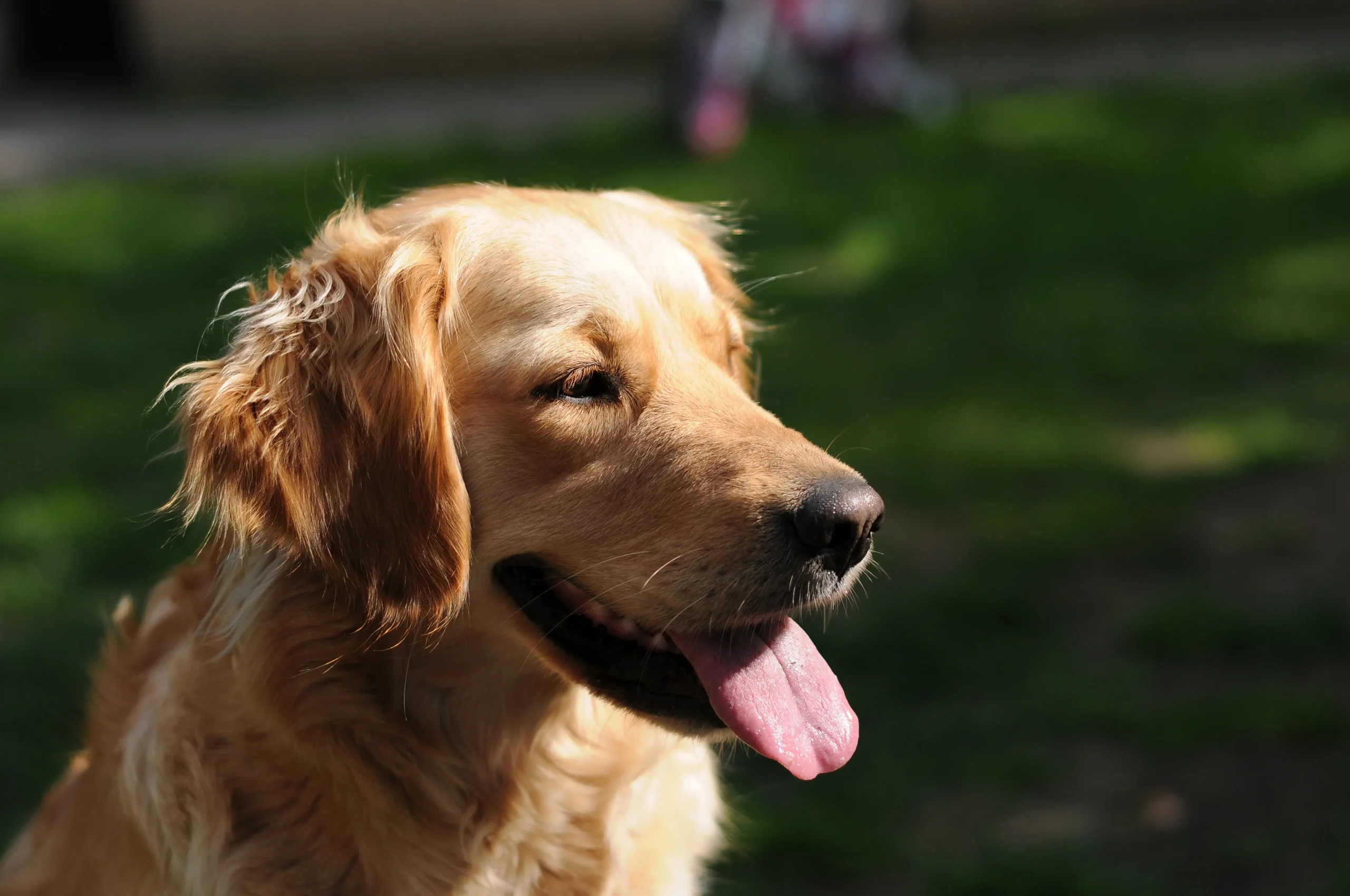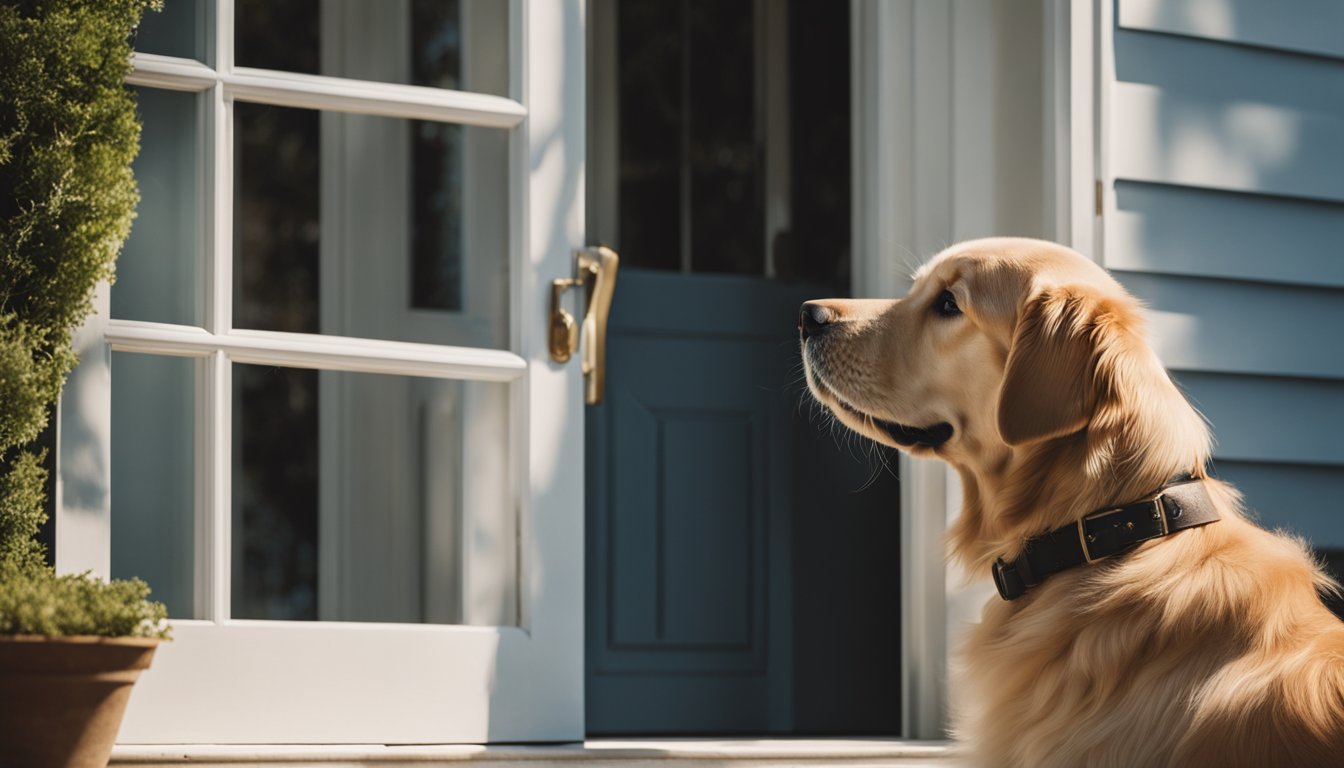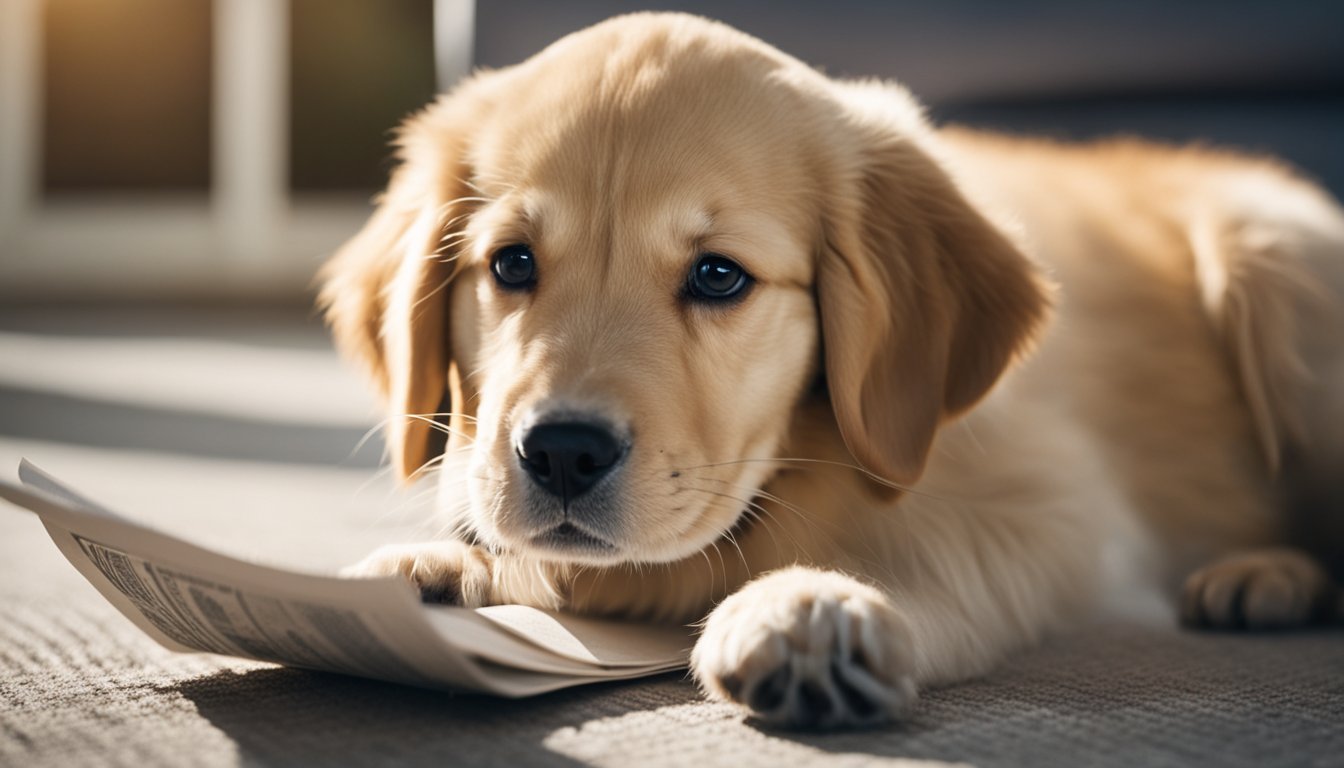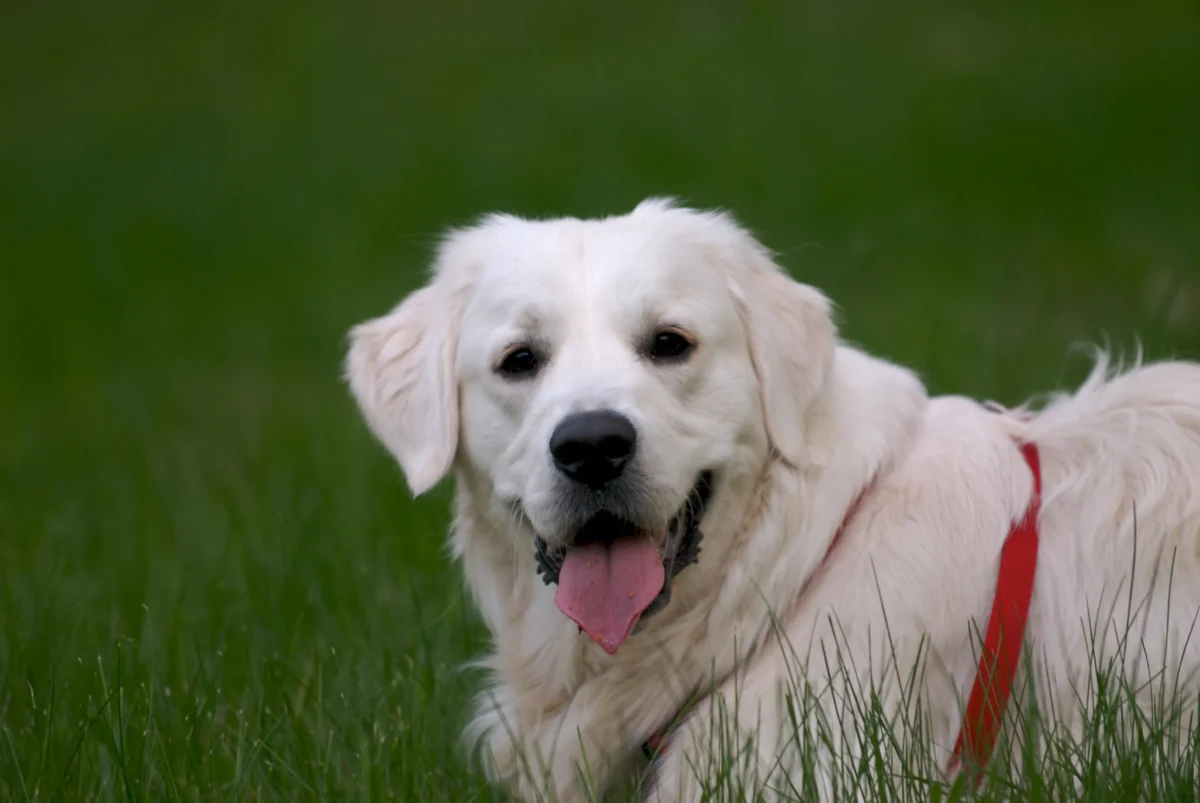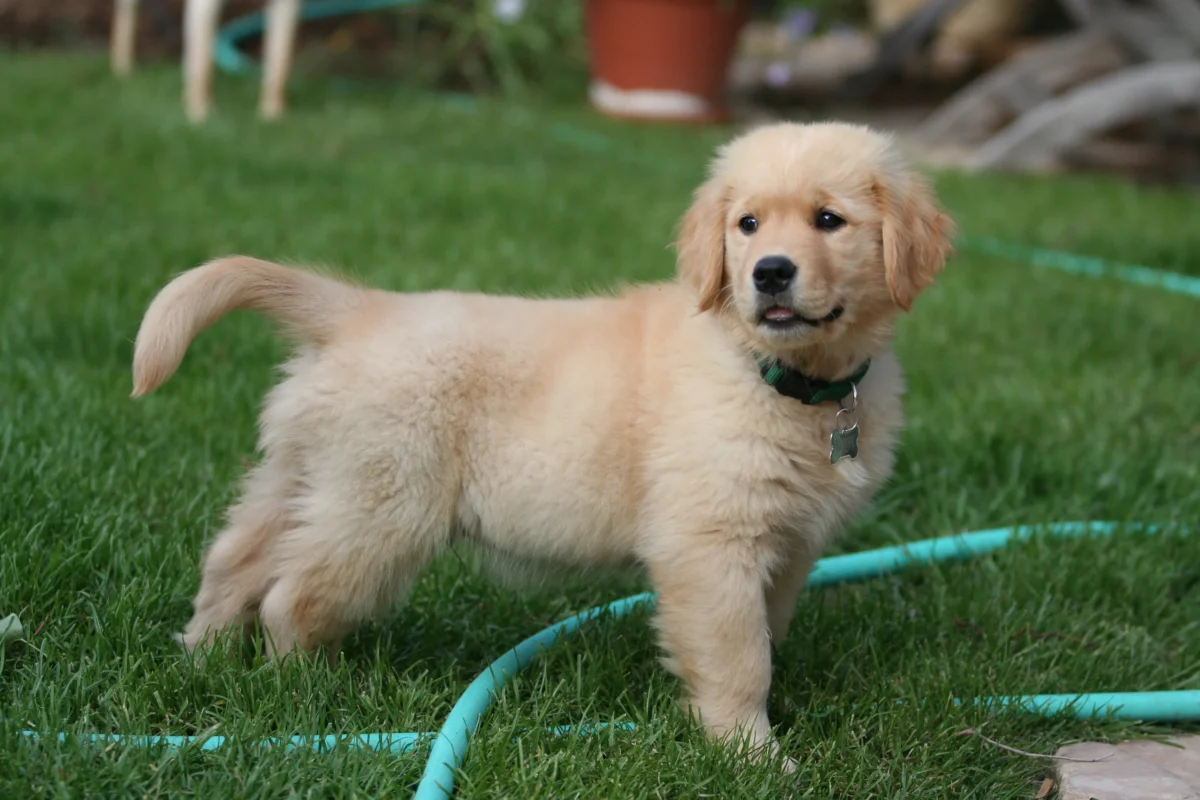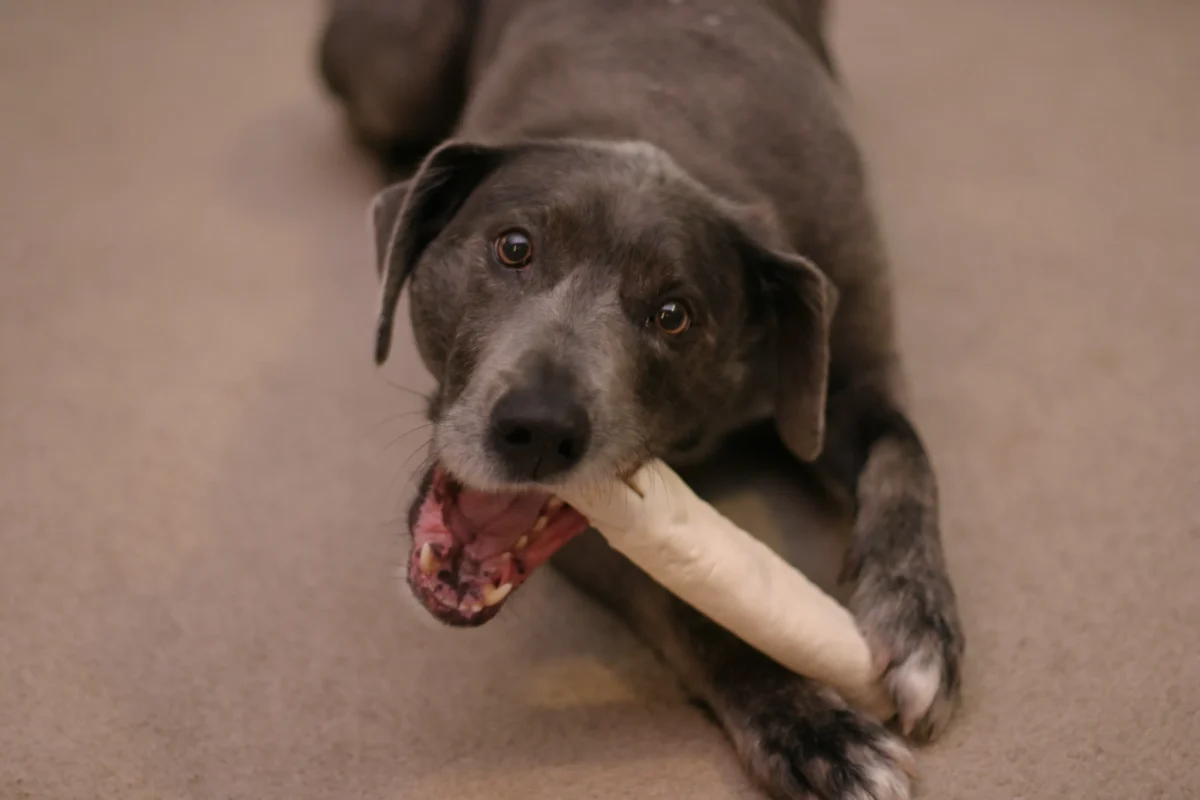Housebreaking a Golden Retriever can be a challenging task, but it is an essential part of owning a dog. By housebreaking your Golden Retriever, you are teaching them to be a well-behaved and obedient pet. Housebreaking involves teaching your puppy where to go potty and where not to go. It is a process that requires patience, consistency, and positive reinforcement.
Understanding your Golden Retriever puppy is the first step in housebreaking them. Golden Retrievers are intelligent and eager to please, which makes them relatively easy to train. However, they can be stubborn at times, so it’s important to remain consistent with your training. The basics of housebreaking involve teaching your puppy to go potty outside, rewarding them for good behavior, and creating a routine that works for both you and your puppy.
Crate training is an important aspect of housebreaking your Golden Retriever. It provides a safe and comfortable space for your puppy to sleep and rest while also helping to prevent accidents. Feeding and exercise are also key factors in housebreaking. Feeding your puppy on a schedule and providing them with plenty of exercise can help regulate their bowel movements and make the housebreaking process easier. Effective communication and positive reinforcement are also essential in training your puppy. By rewarding good behavior and using clear and consistent commands, you can help your puppy become a well-behaved and obedient pet.
Key Takeaways
- Understanding your Golden Retriever puppy is the first step in housebreaking them.
- Crate training and a consistent routine can help prevent accidents and make the housebreaking process easier.
- Effective communication and positive reinforcement are essential in training your puppy.
Understanding Your Golden Retriever Puppy
Congratulations on bringing home your new best friend, a Golden Retriever puppy! Before you start housebreaking, it’s important to understand your puppy’s behavior and needs.
Bladder Control
Golden Retriever puppies have small bladders and need to relieve themselves frequently. A general rule of thumb is that puppies can hold their bladder for one hour for every month of age. For example, a three-month-old puppy can hold its bladder for up to three hours.
Establishing a Routine
Establishing a routine is key to successful housebreaking. Take your puppy outside to relieve itself first thing in the morning, after meals, after playtime, and before bedtime. Consistency is key, and your puppy will quickly learn the routine.
Positive Reinforcement
Puppies respond well to positive reinforcement. When your puppy relieves itself outside, praise it and offer a treat. This will help your puppy associate going outside with positive experiences.
Crate Training
Crate training can be a useful tool for housebreaking. Dogs naturally avoid soiling their sleeping area, so a crate can help your puppy learn to hold its bladder. Make sure the crate is the appropriate size for your puppy and provide comfortable bedding.
Patience
Housebreaking a Golden Retriever puppy takes time and patience. Accidents will happen, but don’t punish your puppy. Instead, clean up the mess and continue with the routine. With consistency and positive reinforcement, your puppy will learn to relieve itself outside in no time.
Remember, your Golden Retriever puppy is a loving and intelligent creature that wants to please you. With patience, consistency, and positive reinforcement, you will have a well-housebroken and happy puppy in no time!
The Basics of Housebreaking
https://www.youtube.com/watch?v=IuloeOAiIkQ&embed=true
Housebreaking your Golden Retriever is an important part of training your furry friend. It can be a bit challenging, but with patience and consistency, you can teach your pup to do their business outside. Here are some basics to keep in mind:
1. Control the environment: The first step in housebreaking your Golden Retriever is to control their environment. You can do this by using a crate or confining them to a small area of your home. This will help prevent accidents and make it easier to establish a routine.
2. Establish a routine: Establishing a routine is key to successful housebreaking. Take your pup outside to their designated potty spot at regular intervals throughout the day. This includes first thing in the morning, after meals, after playtime, and before bedtime.
3. Use positive reinforcement: Positive reinforcement is an effective way to train your Golden Retriever. Praise and reward your pup when they do their business outside. This can be a treat, verbal praise, or a pat on the head.
4. Be consistent: Consistency is important when housebreaking your Golden Retriever. Stick to the routine and be patient. It may take some time, but your pup will eventually learn what is expected of them.
« Don’t Feed Your Golden Retrievers Store-Bought Food! Discover the Ultimate Homemade Meal Plan for Happy and Healthy Goldens
Lumps in Golden Retrievers: Understanding the Causes and Treatment Options »
5. Clean up accidents: Accidents will happen, especially during the early stages of housebreaking. When they do, it’s important to clean them up thoroughly to remove any scent. Use an enzymatic cleaner to break down the odor and discourage your pup from using that spot again.

By following these basics of housebreaking, you can successfully train your Golden Retriever to do their business outside. Remember to be patient, consistent, and use positive reinforcement to encourage good behavior.
Crate Training and Its Importance
https://www.youtube.com/watch?v=hl5qpJuSABo&embed=true
Crate training is an essential part of housebreaking your golden retriever. It helps your puppy learn bladder and bowel control and establishes a safe space for them to rest and sleep.
When crate training your golden retriever, it is important to choose the right size crate. The crate should be large enough for your puppy to stand up, turn around, and lie down comfortably, but not so large that they can use one end as a bathroom and the other as a sleeping area.
To make the crate comfortable for your golden retriever, add bedding such as a soft blanket or towel. This will make the crate feel more like a cozy den and help your puppy feel secure.
During crate training, it is important to never use the crate as a form of punishment. The crate should be a positive space where your golden retriever feels safe and secure.
Crate training can also accelerate the housebreaking process. Dogs don’t like to soil their sleeping quarters, so they will learn to hold their bladder and bowel movements while in the crate. This will help your golden retriever learn to associate going to the bathroom with going outside.
Overall, crate training is an important part of housebreaking your golden retriever. It helps establish a safe space for your puppy and accelerates the housebreaking process. Make sure to choose the right size crate and add comfortable bedding to make the crate a cozy den for your golden retriever.
Feeding and Exercise: Key Factors in Housebreaking
https://www.youtube.com/watch?v=CLWEc1jmEzM&embed=true
When it comes to housebreaking your Golden Retriever, feeding and exercise are two key factors that you need to consider. Proper feeding and exercise routines can help you establish a regular potty schedule for your pup, which will make housebreaking a lot easier.

Feeding
Feeding your Golden Retriever at regular intervals can help you predict when your pup will need to go potty. Most puppies eat three to four meals a day when they are growing, and most puppies will have to poop after meals, so paying attention to this short follow-up period is important. Make sure you feed your puppy a high-quality puppy food that is appropriate for their age and size.
You should also establish a regular feeding schedule for your pup. Feeding your puppy at the same time each day will help regulate their digestive system and make it easier for you to predict when they will need to go potty. You can also use feeding time as an opportunity to train your puppy. For example, you can teach your pup to sit and wait for their food before eating.
Exercise
Regular exercise is important for your Golden Retriever’s overall health and well-being, but it can also help with housebreaking. Exercise can stimulate your pup’s digestive system and make them more likely to go potty.
Make sure your pup gets plenty of exercise throughout the day. This can include activities like walks, playtime, and training sessions. You can also use exercise as a way to reinforce good behavior. For example, you can take your pup for a walk after they go potty outside.
In addition to regular exercise, it’s important to provide your pup with plenty of opportunities to go potty outside. Take your pup outside first thing in the morning, after meals, after naps, and before bedtime. Be patient with your pup and give them plenty of time to do their business. Remember to praise and reward your pup when they go potty outside to reinforce good behavior.

By establishing a regular feeding and exercise routine, you can help your Golden Retriever develop a regular potty schedule, which will make housebreaking a lot easier.
Effective Communication and Positive Reinforcement
https://www.youtube.com/watch?v=Py-thV0hf2U&embed=true
Housebreaking a Golden Retriever can be a challenging task, but it can be made easier with effective communication and positive reinforcement. By communicating clearly with your dog and rewarding good behavior, you can help your Golden Retriever learn what is expected of them and how to behave appropriately.
One effective method of communication is using a bell. By hanging a bell on the door that you use to take your Golden Retriever outside, you can teach them to ring the bell when they need to go outside. This can be done by ringing the bell yourself each time you take them outside and saying a command such as “potty time.” Eventually, your Golden Retriever will learn to ring the bell themselves when they need to go outside.
Positive reinforcement is also a key component of effective communication. This involves rewarding good behavior with treats, praise, or playtime. When your Golden Retriever goes potty outside or rings the bell to signal that they need to go outside, be sure to reward them with a treat or praise. This will help them learn that going outside is a good thing and will encourage them to continue doing so.

It’s important to note that positive reinforcement should be used consistently and immediately after good behavior. This will help your Golden Retriever understand what they are being rewarded for and will encourage them to repeat the behavior in the future.
In addition to treats and praise, it’s important to communicate with your Golden Retriever in a positive and friendly tone. Dogs respond well to positive reinforcement and are more likely to behave appropriately when they feel loved and appreciated. By communicating with your Golden Retriever in a friendly tone and rewarding good behavior, you can help them learn what is expected of them and how to behave appropriately.
Dealing with Accidents and Maintaining Cleanliness
https://www.youtube.com/watch?v=7ORIJshKjKs&embed=true
Accidents are bound to happen during the housebreaking process of your Golden Retriever. However, it is essential to deal with them effectively to maintain cleanliness in your home.
Firstly, it is crucial to take your puppy out for a potty break frequently. Puppies have small bladders and need to urinate or defecate often. Take them out after naps, meals, and playtime. If you notice your puppy sniffing around or circling, it’s a sign that they need to go out.
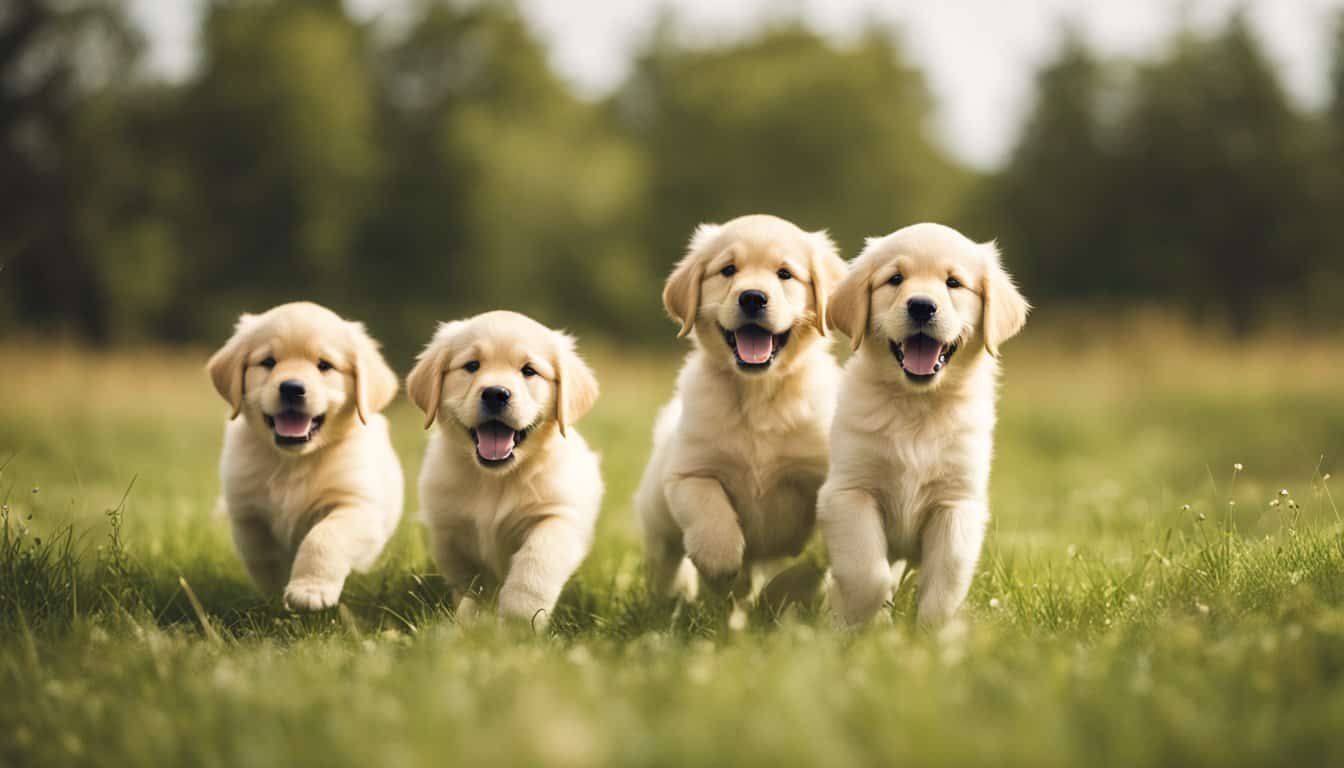
If an accident does happen inside, clean it up immediately. Use an enzymatic cleaner to eliminate any odors that may linger. Avoid using cleaning products with ammonia or vinegar as they can attract your puppy back to the same spot.
Puppy pads or paper training can be useful in the early stages of housebreaking. However, it’s essential to wean your puppy off them gradually. Encourage your puppy to go outside for potty breaks instead of relying on pads or paper.
During the housebreaking process, it’s crucial to keep a watchful eye on your puppy. If you cannot supervise them, confine them to a crate or a puppy-proofed area. This will reduce the likelihood of accidents happening when you’re not around.
In conclusion, dealing with accidents and maintaining cleanliness during the housebreaking process of your Golden Retriever requires patience and consistency. With proper training and frequent potty breaks, accidents will become less frequent. Remember to clean up accidents promptly and use enzymatic cleaners to eliminate odors.
Frequently Asked Questions
https://www.youtube.com/watch?v=uhVDpdkucNk&embed=true
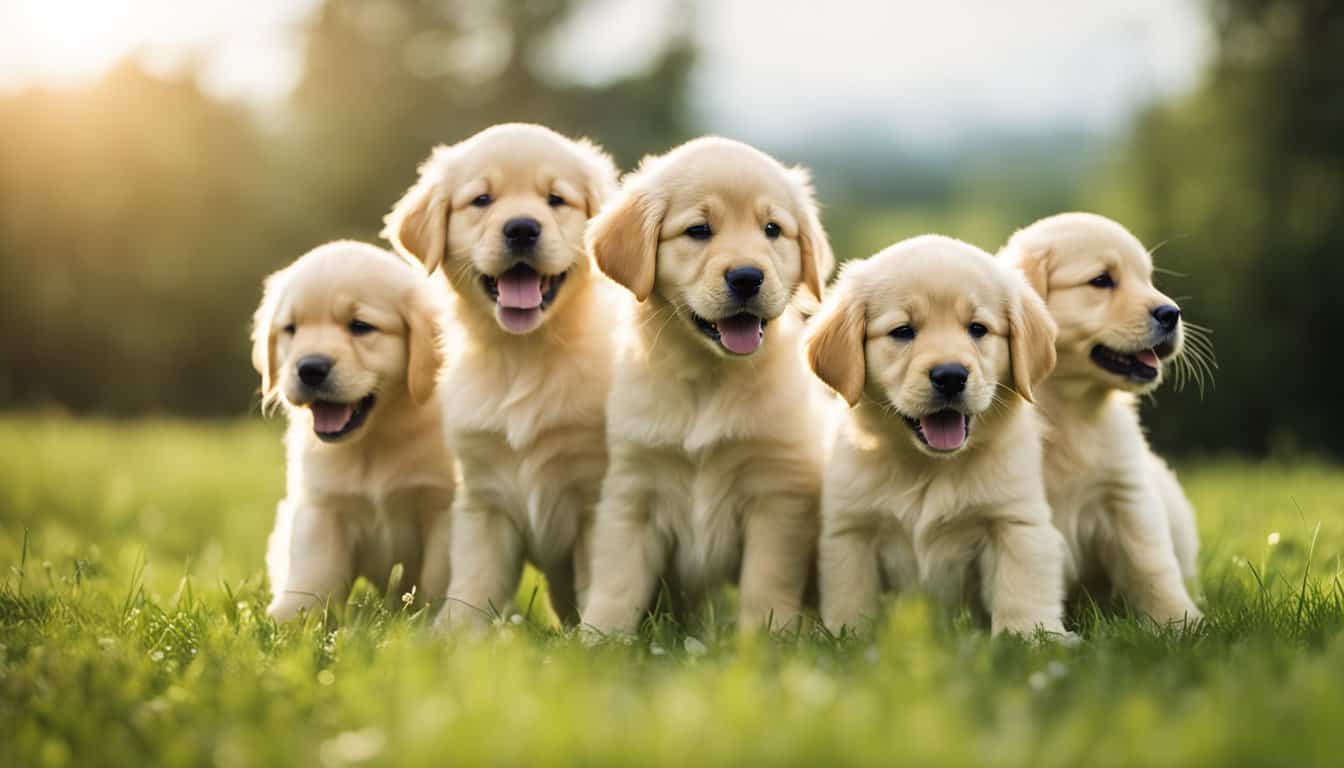
How long does it take to potty train a Golden Retriever puppy?
Potty training a Golden Retriever puppy can take anywhere from a few weeks to several months. The exact time frame depends on various factors, such as the puppy’s age, temperament, and your consistency in training. It is important to be patient and consistent with your training efforts to ensure success.
What age is most difficult for Golden Retrievers?
Golden Retrievers can be stubborn during their adolescent phase, which typically occurs between 6 and 18 months of age. During this time, they may challenge your authority and test boundaries. It is important to continue with consistent training during this phase to ensure that your Golden Retriever develops good habits.
Are Golden Retrievers easy to house train?
Golden Retrievers are generally easy to house train, but it requires patience, consistency, and positive reinforcement. It is important to establish a routine and take your puppy outside frequently, especially after meals, playtime, and naps. Praise and reward your puppy for going potty outside to reinforce good behavior.
How to train a Golden Retriever puppy?
Training a Golden Retriever puppy requires consistency, patience, and positive reinforcement. Start with basic commands such as “sit,” “stay,” and “come.” Use treats and praise to reward good behavior. Socialization is also important, so expose your puppy to different people, animals, and environments.
Crate training a Golden Retriever puppy?
Crate training can be a useful tool for potty training and keeping your Golden Retriever safe when you’re not home. Introduce the crate gradually and make it a positive experience by placing treats and toys inside. Never use the crate as a form of punishment, and never leave your puppy in the crate for extended periods.
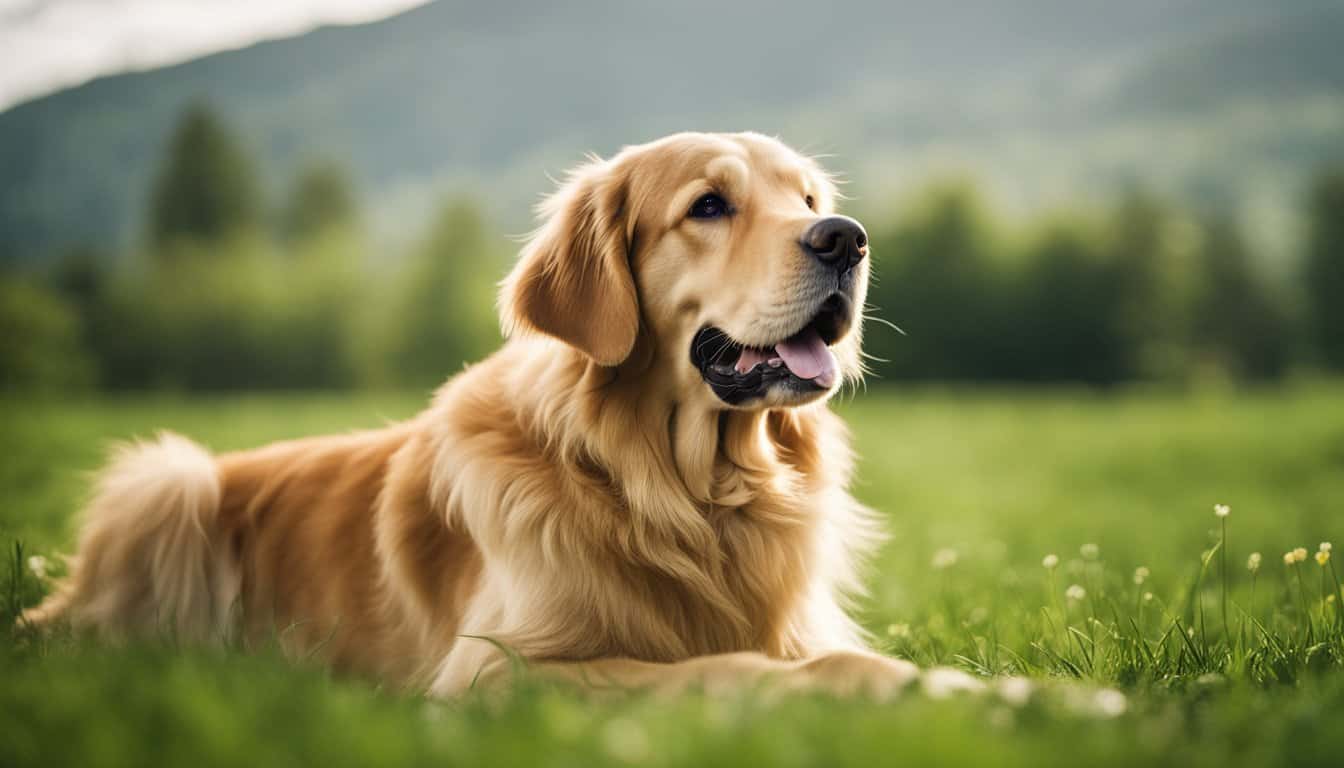
How long can Golden Retrievers hold their pee?
Golden Retrievers can typically hold their pee for up to 4-6 hours, depending on their age and activity level. However, it is important to take your puppy outside frequently, especially during potty training, to prevent accidents inside the house. If you need to be away for an extended period, consider hiring a dog walker or pet sitter to take your Golden Retriever outside.

